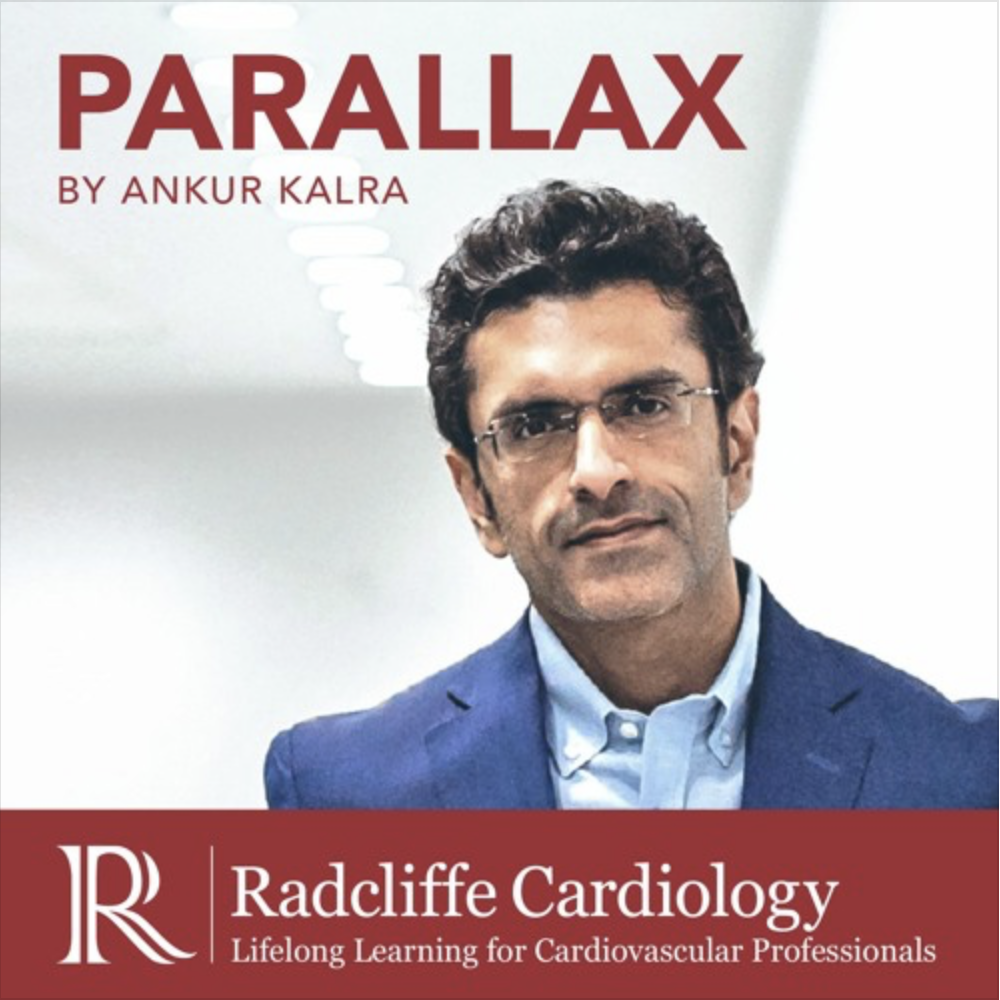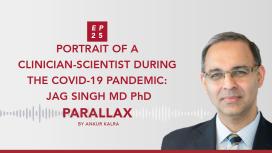
24: COVID-19 Lessons And Learnings From Italy With Prof Michele Senni
“It’s a tsunami not just a wave. The worst tsunami you can imagine”
Prof Michele Senni is Director of Cardiology at Papa Giovanni XXIII Hospital, Bergamo Italy. He contracted COVID-19 himself and in this latest podcast he meets with Ankur Kalra, MD to discuss his personal experience in dealing with patients and COVID-19 in Europe’s outbreak epicentre.
Hear them discuss the burden on healthcare, patient selection, the importance of testing and PPE and how COVID has resulted in a reduction of acute myocardial infarction and heart failure in patients.
Submit your question to Ankur via: podcast@radciffe-group.com. Hosted by @AnkurKalraMD. Produced by @RadcliffeCARDIO.
Read MoreRead Less

A week after Jag Singh had tested positive for 2019-nCoV, he became a patient in his hospital’s intensive care unit. This week he joins Ankur Kalra, MD to tell us about his journey as a clinician-scientist.
Jagmeet P Singh, associate chief of the cardiology division at Massachusetts General Hospital and professor of medicine at Harvard Medical School joins Ankur Kalra for a deep conversation about his journey across three continents. Dr Singh talks about the importance of choosing fulfilment over success. We gain more insights on the recent late-breaking trial, MADIT-CHIC focusing on cardiac resynchronization therapy. Ankur asks Jag about his experience of being on the other side of the healthcare system and his enrolment in the since halted remdesivir trial.
Read More
Jagmeet P Singh, associate chief of the cardiology division at Massachusetts General Hospital and professor of medicine at Harvard Medical School joins Ankur Kalra for a deep conversation about his journey across three continents. Dr Singh talks about the importance of choosing fulfilment over success. We gain more insights on the recent late-breaking trial, MADIT-CHIC focusing on cardiac resynchronization therapy. Ankur asks Jag about his experience of being on the other side of the healthcare system and his enrolment in the since halted remdesivir trial.
All Episodes

Ankur is back with his second #AudioArticle! This week he spoke with Santiago Garcia from the Minneapolis Heart Institute about Santiago’s US Cardiology Review 13.1 article on the role of high-sensitivity cardiac troponin (hscTn) assays and their ability to rapidly rule in or rule out acute coronary syndrome (ACS) with improved sensitivity.
Chest pain is one of the most common reasons for an emergency room visit in the US, with almost 6 million ER visits annually, yet there is no consensus on how to compare the results from various hscTn assays. Tune in to hear Santiago outline the advantages and limitations of using hscTn as a standard biomarket to evaluate patients with suspected ACS in the ER.
Hosted by @AnkurKalraMD. Produced by @RadcliffeCardiology.
Read More
Chest pain is one of the most common reasons for an emergency room visit in the US, with almost 6 million ER visits annually, yet there is no consensus on how to compare the results from various hscTn assays. Tune in to hear Santiago outline the advantages and limitations of using hscTn as a standard biomarket to evaluate patients with suspected ACS in the ER.
Hosted by @AnkurKalraMD. Produced by @RadcliffeCardiology.

In our first episode, Ankur explains his vision for and inspiration to start ‘Parallax’, and speaks with Chad Kliger from Lenox Hill Hospital in New York about conduction abnormalities after transcatheter aortic valve replacement (TAVR/TAVI), a review article published in US Cardiology Review 13.1 Ankur and Chad look at conduction abnormalities after TAVR/TAVI with a focus on basic conduction system anatomy in relation to the aortic valve, the mechanism, incidence, predisposing factors for occurrence, impact on mortality and finally, proposed treatment algorithms for management. Hosted by @AnkurKalraMD. Produced by @RadcliffeCardiology.
Read More

Ankur is back with his second #AudioArticle! This week he spoke with Santiago Garcia from the Minneapolis Heart Institute about Santiago’s US Cardiology Review 13.1 article on the role of high-sensitivity cardiac troponin (hscTn) assays and their ability to rapidly rule in or rule out acute coronary syndrome (ACS) with improved sensitivity.
Chest pain is one of the most common reasons for an emergency room visit in the US, with almost 6 million ER visits annually, yet there is no consensus on how to compare the results from various hscTn assays. Tune in to hear Santiago outline the advantages and limitations of using hscTn as a standard biomarket to evaluate patients with suspected ACS in the ER.
Hosted by @AnkurKalraMD. Produced by @RadcliffeCardiology.
Read More
Chest pain is one of the most common reasons for an emergency room visit in the US, with almost 6 million ER visits annually, yet there is no consensus on how to compare the results from various hscTn assays. Tune in to hear Santiago outline the advantages and limitations of using hscTn as a standard biomarket to evaluate patients with suspected ACS in the ER.
Hosted by @AnkurKalraMD. Produced by @RadcliffeCardiology.

In our first episode, Ankur explains his vision for and inspiration to start ‘Parallax’, and speaks with Chad Kliger from Lenox Hill Hospital in New York about conduction abnormalities after transcatheter aortic valve replacement (TAVR/TAVI), a review article published in US Cardiology Review 13.1 Ankur and Chad look at conduction abnormalities after TAVR/TAVI with a focus on basic conduction system anatomy in relation to the aortic valve, the mechanism, incidence, predisposing factors for occurrence, impact on mortality and finally, proposed treatment algorithms for management. Hosted by @AnkurKalraMD. Produced by @RadcliffeCardiology.
Read More





